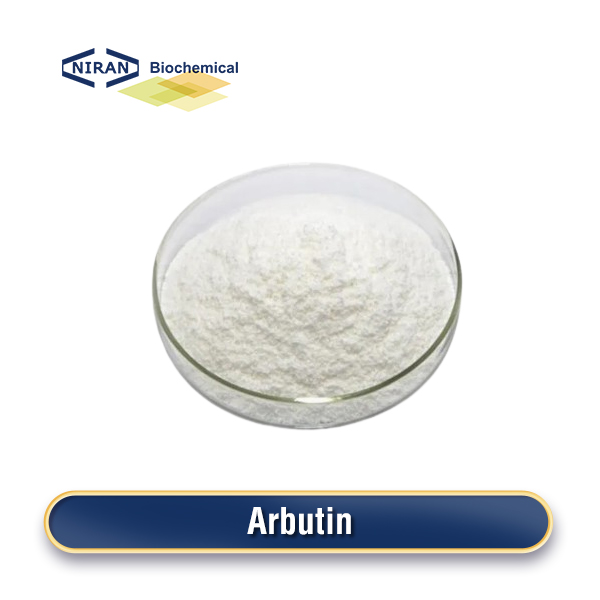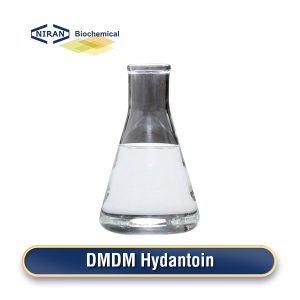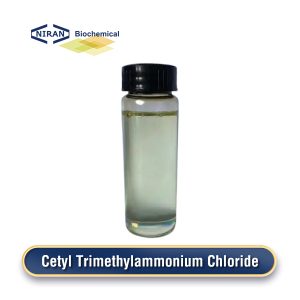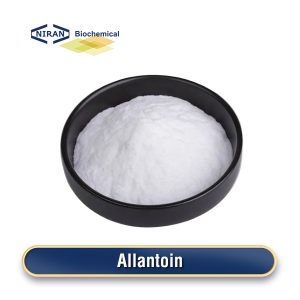Arbutin
- CAS Number: 84380-01-8
- Chemical Formula: C12H16O7
- MOQ: 1000KG
- Shelf Life: 2 years
- Synonyms: Arbutoside, Hydroquinone β-D-glucopyranoside
Product Description
What Is Arbutin?
Bearberry, blueberry, and cranberry are among the plants that naturally contain arbutin. Because of its brightening and skin-lightening qualities, this glycoside of hydroquinone is typically found in cosmetic products. Arbutin reduces hyperpigmentation and evens skin tone by inhibiting melanin-producing tyrosinase enzyme.
Preparation Method:
Arbutin can be obtained through extraction from plants, or it can be synthesized in a laboratory setting. The synthetic process typically involves glycosylation of hydroquinone using glucose or glucuronic acid to form the glycoside. The ultimate form of beta-or alpha-arbutin is obtained by drying and purifying the high-purity result from this process.
Related Parameters:
| Items | Standards |
| Melting Point (℃) | 199-201 (±0.5) ℃ |
| pH (1% aqueous solution) | 5.0 – 7.0 |
| Purity (HPLC, normalized) | ≥99.5% |
| Specific Rotation | [α]D20 = -64° to -66° |
| Moisture Content | ≤0.5% |
| Hydroquinone (mg/kg) | ≤20 |
| Mercury (Hg, mg/kg) | ≤1 |
| Lead (Pb, mg/kg) | ≤40 |
| Arsenic (As, mg/kg) | ≤10 |
| Total Plate Count (CFU/g) | ≤300 |
Recommended Dosage of Arbutin:
| Applications | Dosage |
| Skin Whitening & Brightening | 1% – 2% |
| Anti-aging Products | 0.5% – 1% |
| Sun Protection Products | 1% – 2% |
| Hyperpigmentation Treatment | 2% – 5% |
| Facial Creams & Serums | 0.5% – 2% |
| Toners & Lotions | 0.5% – 1.5% |
| Dark Spot Correctors | 2% – 5% |
| Moisturizers | 0.5% – 1% |
Arbutin Has Wide Range of Uses:
Skin Whitening & Brightening: Arbutin inhibits tyrosinase to reduce melanin production, helping lighten dark spots, freckles, and age spots for a more even skin tone.
Anti-aging Products: It addresses pigmentation and age spots, promoting a youthful appearance by reducing uneven skin tones.
Hyperpigmentation Treatment: Arbutin is effective for treating melasma, acne scars, and sunspots, by fading dark patches and improving skin clarity.
Sun Protection: While not a sunscreen, it complements UV protection by reducing pigmentation caused by sun exposure.
Moisturizers & Serums: It brightens and hydrates the skin, promoting a glowing complexion.
Facial Creams & Toners: Used in these products to refresh and soothe the skin, reducing discoloration.
Dark Spot Correctors: Targeted treatments use Arbutin to lighten dark spots and blemishes.
User Asked Question:
Q: Is Arbutin better than hydroquinone?
A: Arbutin is considered a safer, milder alternative to hydroquinone, which may cause irritation or sensitivity. Arbutin offers similar benefits without the risks associated with hydroquinone.




